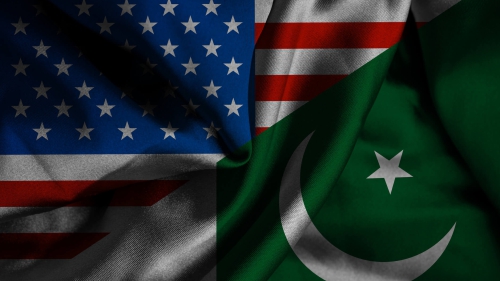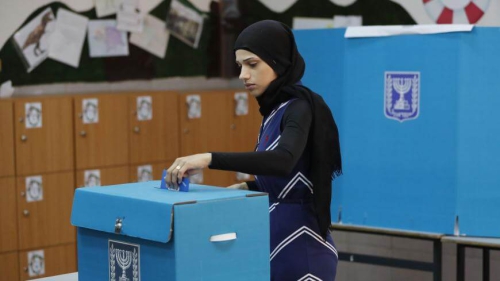The Politics of Fear

“This politics of fear has actually delivered everything we were afraid of.”
Well, OK, let’s think about these words of Jill Stein for a moment, as the 2016 presidential race enters, oh Lord, it’s final month — and the possibility still looms that this country could elect a hybrid of Benito Mussolini and Jim Crow its next, uh, commander in chief.
Politics of fear, indeed! Most of the people I know are going to vote for Hillary Clinton, and I get it. The other guy is the most unapologetic “greater evil” the Democrats have ever been blessed with.
Everybody’s scared. Bernie Sanders, my guy, the force behind the Bernie Revolution that almost transformed, or reclaimed, the Democratic Party this year, said: “I know more about third-party politics than anyone. (But) this is not the time for a protest vote.”
And Michelle Obama, speaking at a Clinton rally a few days ago, equated not voting at all with voting for a third-party candidate. She told the crowd, according to Bloomberg.com, that they could “help swing an entire precinct for Hillary’s opponent with a protest vote or by staying home out of frustration.” (And the headline on the Bloomberg story neatly summed up the media consensus on how democracy works: “Which States Can Gary Johnson and Jill Stein Spoil?”)
A month to go and I find myself skewered with something bigger than frustration. It begins with the false, dead enthusiasm I hear in Hillary’s attempts to rally her base, the tepid “USA! USA!” she invokes as she praises America’s generals and its wars and its moral righteousness. She and Trump are running for president of the same illusion, and there’s something seriously wrong with this.
It’s no accident that most of the focus this election season is on how bad the other candidate is. The rallying cry from both sides is: We have no choice. And I agree with those words, but attach a different meaning to them. We have no choice because we’re given no choice. We live in a permanent state of Democracy for Dummies: a complexity-free democracy, reduced to a game of winning and losing. The voters are spectators, not co-creators of the national future. No, the future is already predetermined, and it’s one of unquestioned military budgets and endless war.
Andrew Bacevich, reflecting on the lameness of the first presidential debate last week, pondered a different scenario: a debate in which real questions are addressed. “Consider it,” he wrote, “the question that Washington has declared off-limits: What lessons should be drawn from America’s costly and disappointing post-9/11 wars and how should those lessons apply to future policy?”
Can you imagine an actual, serious discussion of such a question? Can you imagine that the point of this discussion wasn’t to clobber and humiliate the other guy but rather to address a deep, unacknowledged national (and global) wound and begin the work of healing it?
Such questions have been missing from the U.S. presidential elections since 1972, when George McGovern ran on a platform of ending the Vietnam War. In the 44 years since, we’ve gotten grotesquely used to campaigns about far, far less than that — with the mainstream media acting as the bouncers, keeping impertinent questions, and candidates, out of the pseudo-news. This year, with two extremely unpopular major-party candidates vying for the job of president, the media have been more cynically dismissive than ever of third-party intruders, a.k.a., spoilers. And of course, any third-party vision of the future is idealistic treacle, not something to actually talk about.
So it is in this context that I bring Jill Stein and the Greens back into the discussion: “All the reasons you were told you had to vote for the lesser evil,” she said last June, in a Democracy Now interview “— because you didn’t want the massive Wall Street bailouts, the offshoring of our jobs, the meltdown of the climate, the endless expanding wars, the attack on immigrants — all that, we’ve gotten by the droves, because we allowed ourselves to be silenced. You know, silence is not what democracy needs. . . .
“It’s time,” she said, “to forget the lesser evil, stand up and fight for the greater good like our lives depend on it, because they do.”
If you’re not a Trump supporter, you may well be someone caught between the fear of Trump and the longing for a political process truly engaged in the creation of a compassionate, sustainable future. Is voting Green the way to go? I don’t know, but I definitely do not believe shutting the Green Party’s presidential candidate and platform out of the discussion is the way to go.
The Green platform, as outlined recently by David Cobb, Stein’s campaign manager and 2004 Green Party presidential candidate, includes such items as: transitioning to 100 percent renewable energy (and creating millions of jobs in the process); ending mass incarceration; creating a Truth and Reconciliation Commission “to understand and eliminate the legacy of slavery”; ending our current wars and drone attacks, closing our 700-plus foreign military bases and slashing military spending by at least 50 percent; taking the lead on a global treaty to halt climate change.
There’s plenty more, but this cuts to the heart of it. The media consensus on such a platform begins and ends, no doubt, with rolled eyeballs. The unspoken message is: This stuff’s for later. We’ll start addressing it in 2020.
*****
Robert Koehler is an award-winning, Chicago-based journalist and nationally syndicated writer. Contact him at [email protected] or visit his website at commonwonders.com.
© 2016 TRIBUNE CONTENT AGENCY, INC.

















